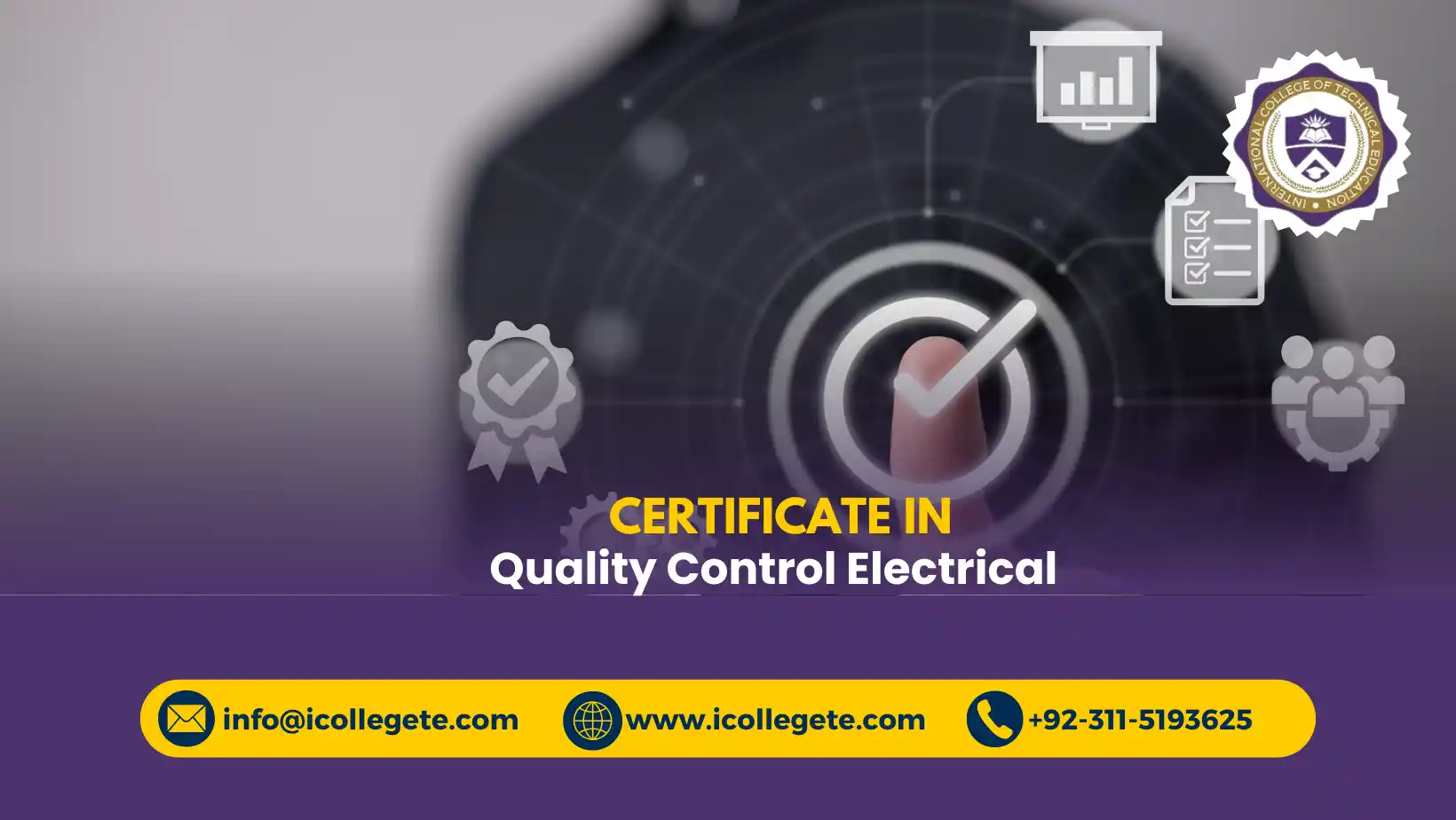In today’s rapidly evolving industrial and construction sectors, the demand for reliable and safe electrical systems has never been higher. Ensuring the quality of electrical installations and components is critical to maintaining performance, safety, and compliance with standards. The Quality Control Electrical Course in Attock is specifically designed to train individuals in the principles and practices of electrical quality assurance and control, preparing them for a rewarding career in the electrical engineering field.
The Quality Control Electrical Course in Attock focuses on building core competencies in inspecting, testing, and maintaining the quality of electrical systems and equipment. This program is tailored for aspiring technicians, engineers, and professionals who want to ensure that electrical installations meet both national and international standards.
This course provides a balanced mix of theoretical knowledge and practical training. Participants will learn about electrical codes, testing procedures, safety protocols, and the documentation required to verify electrical quality in residential, commercial, and industrial projects. The course is delivered by experienced instructors with strong industry backgrounds and includes hands-on practice in real-world scenarios.
Study Units
Key topics covered in the course include:
- Introduction to Quality Control in Electrical Engineering
- Electrical Codes and Standards (IEC, NEC, PEC, etc.)
- Electrical Wiring Systems and Installations
- Testing of Electrical Components (cables, circuit breakers, transformers)
- Earthing and Grounding Systems
- Electrical Load Testing and Balancing
- Power Quality and Harmonics Analysis
- Safety Measures and Risk Management in Electrical Systems
- Inspection and Compliance Reporting
- Quality Management Systems and Documentation
Learning Outcomes
By the end of the course, students will be able to:
- Understand the principles of electrical quality control
- Conduct inspections and perform diagnostic tests on electrical installations
- Apply safety practices in testing and maintenance procedures
- Identify faults and recommend corrective actions
- Interpret and implement national and international electrical standards
- Maintain accurate records and quality reports for compliance
Course Benefits
- Practical, job-oriented training in electrical quality control
- Exposure to real-life testing tools and inspection techniques
- Industry-recognized certification to boost employability
- Development of analytical and technical problem-solving skills
- Increased confidence in supervising and maintaining electrical quality standards
- Access to career support and guidance for further progression
Who Is This Course For?
This course is suitable for:
- Electrical diploma holders and engineering students
- Junior electricians and technicians seeking advanced knowledge
- Individuals working in construction, manufacturing, or energy sectors
- Professionals aiming to move into quality assurance roles
- Anyone interested in a practical, skill-based course to enhance their career in electrical engineering
Future Progression
Graduates of the Quality Control Electrical Course in Attock can look forward to several progression opportunities, including:
- Employment as Electrical Quality Inspectors, QA/QC Engineers, or Site Supervisors
- Advancement to roles in project management or safety compliance
- Further studies in Electrical Engineering or Power Systems Management
- Certification in advanced areas such as ISO 9001, OSHA, or IEC Compliance
- Career opportunities in power plants, construction companies, maintenance firms, and inspection agencies
The Quality Control Electrical Course in Attock offers a comprehensive pathway for individuals who want to build a specialized career in electrical quality assurance. With its focus on practical skills, technical expertise, and compliance knowledge, this course is an excellent choice for those looking to make a strong impact in the electrical industry. Whether you are a student, technician, or working professional, this course can help you step into a vital role that ensures safety, efficiency, and reliability in electrical systems.





